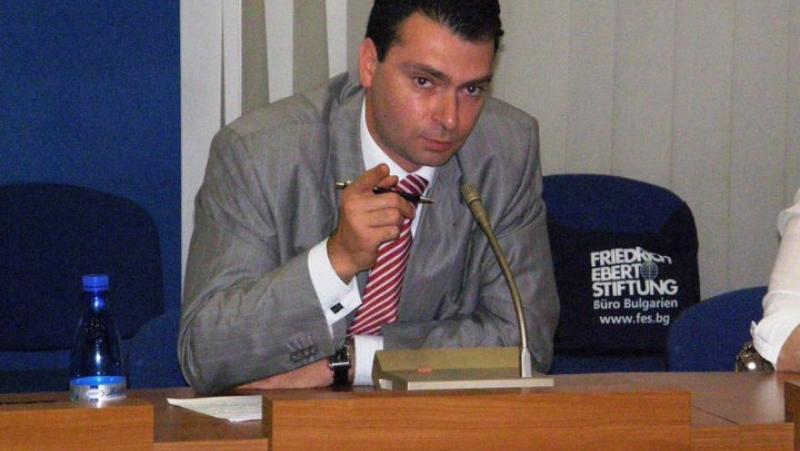Mature women are more active in the Ministry of Health’s screening program for free examinations and tests for cervical cancer. This was stated by the Medical Center of UMBAL – “St. Nicholas the Wonderworker” for a month and a half after the start of the campaign.
Free preventive examinations under the program are aimed at women in two age groups – from 20 to 29 years old. and from 40 to 49 years. In addition to a gynecological examination, they also include a free smear examination. Examinations are without a referral, without a user fee and regardless of whether the woman has health insurance. The only requirement under the program at this time is that women be between the ages of 20 and 29 and between 40 and 49. The goal is to reduce mortality from this type of cancer through early detection and timely treatment. It is defined as a “cancer of the young” because it is the second most common cancer among women between the ages of 15 and 44.
The second age group is decidedly more active and more proactive. Out of nearly 100 women examined in the St. Nikolay Chudtoverets” units are those 20 years old. At the same time, the consequences are more serious for them, if the changes in the cervix are not detected in time, explain obstetricians and gynecologists. Young women are yet to conceive and bear children. Often precancerous lesions of the cervix are diagnosed exactly during pregnancy, when carrying out surgical treatment for their removal can lead to premature birth and loss of the fetus. Ltreatment of cervical cancer in young women (resection, chemotherapy and/or radiation) makes future pregnancy impossible.
Screening aims to identify individuals in an apparently healthy population who are at higher risk for a health problem or condition so that early treatment or intervention can be offered. The reviews in MC “St. Nicholas the Wonderworker” will continue in December, with the appeal of obstetricians and gynecologists being women between 20 and 29 years old. to be more active and take advantage. Hmandatory is book an appointment on the registry’s phones: 0879 545082, 056 816454 from 08.00-12.00. The phones are only active on weekdays.
The following specialists – obstetrician-gynecologists – participate in the program: Dr. Tatyana Gabrovska, Dr. Yordanka Kirova, Dr. Veselina Fakalieva and Dr. Dobrin Ivanov.
#appeal #UMBAL #Burgas #young #women #tested #cervical #cancer #free #charge

How can healthcare institutions tailor their messaging and outreach efforts to effectively address the specific concerns and anxieties that young women in the 20-29 age group may have about cervical cancer screening?
## World Today News Interview: Spotlight on Cervical Cancer Screening
**Intro:**
Welcome to World Today News. Today we’re discussing a critical health issue affecting women worldwide: cervical cancer. We are joined by two esteemed guests: Dr. [Guest 1 Name], a leading gynecologist, and Ms. [Guest 2 Name], a patient advocate specializing in women’s health.
**Section 1: Understanding Cervical Cancer & the Screening Program **
* **Interviewer:** Dr. [Guest 1 Name], can you shed some light on cervical cancer and why early detection is so crucial? What makes it particularly concerning for young women?
* **Interviewer:** Ms. [Guest 2 Name], what are your thoughts on the accessibility of these free screening sessions offered by the Ministry of Health?
* **Interviewer:** Dr. [Guest 1 Name], the article mentions that women aged 20-29 are less likely to participate in the screening. What are some potential reasons behind this trend, and how can we encourage higher participation in this age group?
**Section 2: The Impact on Young Women**
* **Interviewer:** Dr. [Guest 1 Name], the article highlights the potential serious consequences of undetected cervical cancer in young women, particularly those considering pregnancy. Can you elaborate on what those consequences might be?
* **Interviewer:** Ms. [Guest 2 Name], from a patient perspective, what message would you like to send to young women regarding the importance of cervical cancer screening? What support systems or resources could be helpful to encourage their participation?
**Section 3: Moving Forward: Addressing Barriers & Promoting Awareness**
* **Interviewer:** Both of our guests, we see a disparity in participation between the two age groups targeted by the screening program. How can we effectively address the barriers preventing broader participation, particularly for younger women?
* **Interviewer:** What further steps can be taken by healthcare institutions, advocacy groups, and policymakers to raise awareness about cervical cancer and encourage more women to take advantage of these free screenings?
**Outro:**
Thank you to Dr. [Guest 1 Name] and Ms. [Guest 2 Name] for sharing their valuable insights.
By disseminating this information and encouraging open dialogue, we strive to empower women to take control of their health and prioritize early detection. Remember, regular screenings are crucial in the fight against cervical cancer.


